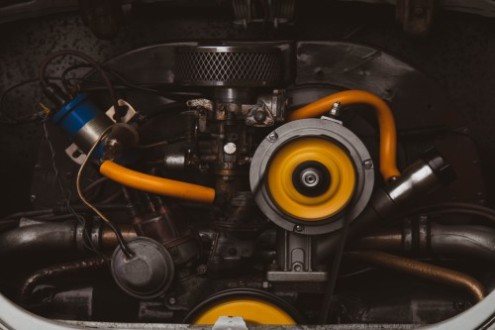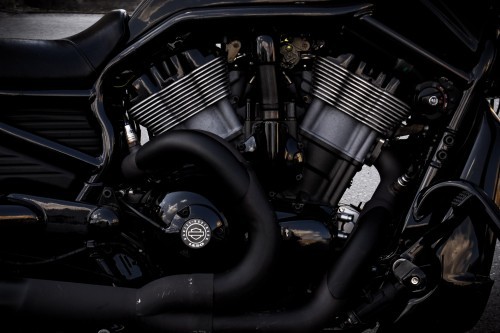The BMW X5, a distinguished luxury SUV, is celebrated not only for its striking design and opulent interior but also for the power and performance concealed beneath its hood. As with any high-performance vehicle, the reliability of its engine is paramount. In this article, we embark on a journey into the heart of the BMW X5 to explore what makes its engines among the most reliable in the automotive world.
Key Features of Reliable BMW X5 Engines:
The success of the BMW X5 is due to its dependable engines, which provide an ideal balance of durability, efficiency, and power. The following are the main characteristics of the BMW X5 engines that increase reliability:
- Performance: The engines of the BMW X5 are known for their powerful output. These engines are favored by performance fans because they offer thrilling acceleration and top-end speed. You can anticipate robust performance across the full RPM (Revolutions Per Minute) range whether you choose the inline-six or V8 engine.
- Efficient Design: Efficiency is a key consideration for BMW engineers. Technologies like direct injection and turbocharging are frequently used to improve power delivery while preserving decent fuel efficiency. The combustion process is optimized in the engines’ design for increased fuel economy without sacrificing performance.
- Durability: BMW engines are renowned for having a lengthy lifespan. To assure the engine’s longevity, premium materials and careful engineering are used. The rigors of high-performance driving are designed to be withstood by these engines, which will also hold their dependability over time.
- Cooling Systems: To prevent overheating during demanding driving conditions, BMW X5 engines are fitted with effective cooling systems. This enhances engine performance and increases its lifespan.
- Advanced Electronics: Modern BMW X5 engines are outfitted with innovative electronic control systems that continuously monitor and modify several engine characteristics. By doing this, the engine is guaranteed to run smoothly under a variety of circumstances, thus increasing reliability.
- Quality Materials: High-quality materials are used in the construction of BMW engines. This includes components like pistons, cylinders, and camshafts, which are built to withstand wear and tear, contributing to long-term reliability.

Engine Technologies and Innovations:
BMW X5 engines use a variety of innovative innovations and technology to improve overall performance and dependability. The following are some important engine advancements and technology found in these powerplants:
- TwinPower Turbo: Direct fuel injection and twin-scroll turbocharging are used in BMW’s TwinPower Turbo technology. Consequently, fuel economy is maintained while power output and torque are enhanced. The innovation minimizes turbo lag and guarantees prompt power delivery.
- Valvetrain: By modifying the intake valve lift, the Valvetrain variable valve lift system maximizes engine efficiency. Better air intake management made possible by this technology boosts power and fuel efficiency.
- Direct Injection: Direct fuel injection allows for more exact control of the combustion process by delivering fuel directly into the combustion chamber. As a result, efficiency is increased, and emissions are decreased.
- Variable Valve Timing: Engine speed and load are used to change the intake and exhaust valve timing in BMW X5 engines using variable valve timing systems. This improves both fuel economy and power delivery.
- Mild Hybrid Technology: Some vehicles include mild hybrid systems that employ an integrated electric motor to provide additional power during acceleration and regenerative braking. These solutions improve overall performance and fuel economy.
- Hybrid and Plug-In Hybrid Options: The X5 is available in plug-in hybrid and hybrid models from BMW that combine electric motors with conventional internal combustion engines. These vehicles can travel short distances solely on electricity, which lowers their fuel usage and pollutants.
- Eco-Pro Mode: Driving modes like Eco-Pro, which optimize engine performance for optimal efficiency, are available on some BMW X5 models. To save gasoline, it modifies the throttle response and other engine settings.
- Advanced Engine Management Systems: Advanced engine management systems are included in BMW X5 engines to continually monitor and modify engine settings for optimum performance and dependability.
Maintenance and Care Tips:
The durability and dependability of your BMW X5 engine depend on proper maintenance and upkeep. Here are some essential upkeep and maintenance advice:
1. Regular Oil Changes: Follow the manufacturer’s guidelines for changing the engine oil regularly. For BMW X5 engines, premium synthetic oil is normally advised. This aids in lubricating engine parts and preventing early wear.
2. Cooling System Maintenance: By routinely inspecting the radiator, hoses, and coolant levels, you can maintain the cooling system. It is critical to fix cooling system concerns as soon as possible since overheating might result in engine damage.
3. Fuel Quality: Utilize premium gasoline with the appropriate octane rating. Using high-quality gasoline keeps engines running smoothly and efficiently.
4. Tire Maintenance: Tyres that are balanced and properly inflated ease engine stress and increase fuel economy. Check the alignment and Tyre pressure often.

5. Battery Maintenance: Make sure the battery is in excellent shape because it is essential for starting the engine. If required, replace outdated batteries, and clean the terminals.
6. Timing Belt or Chain Inspection: It is crucial to replace your BMW X5’s timing belt according to the manufacturer’s suggestions. Make that the timing chain, if it has one, is clean, oiled, and in excellent working order.
7. Use Quality Parts: Use original or premium aftermarket parts when replacing or repairing engine components to preserve performance and dependability.
8. Maintain Proper Fluid Levels: Check and maintain the levels of all fluids, including the power steering, gearbox, and engine coolant. Engine issues may result from low or contaminated fluid levels.
The Future of BMW X5 Engines:
As the automotive industry undergoes a considerable shift towards sustainability, electrification, and innovative technology, the future of BMW X5 engines is prepared for new improvements. Here is a sneak peek at what the BMW X5 engines of the future may entail:
- Electrification: BMW is going to increase the number of electric and hybrid models available in the X5 portfolio as the automotive industry moves towards electrification. Expect future plug-in hybrid vehicles and even an all-electric X5 to further cut back on emissions and fuel usage.
- Enhanced Hybrid Technology: Future BMW X5 hybrids could use more sophisticated hybrid technology, such as bigger battery packs, greater ranges while driving purely on electricity, and improved regenerative braking systems for better efficiency.
- Advanced Materials: Future X5 engine designs will include strong, lightweight materials like carbon fiber to cut weight and boost fuel economy without sacrificing structural integrity.
- Autonomous Features: Future X5 engines might have close integration with autonomous driving technologies, allowing for safer and more effective operation. Advanced driver assistance technologies like adaptive cruise control systems may be powered by these engines.
- Enhanced Connectivity: Future engines are going to be more interconnected, enabling real-time data transfer, wireless upgrades, and seamless connection with other vehicle systems, improving performance and economy.
- Performance Improvements: To preserve its reputation for producing high-performance SUVs, BMW is going to keep enhancing the X5 engines’ power and performance. Look for variations that are more powerful and have faster top speeds.
- Environmental Sustainability: BMW is anticipated to concentrate on minimizing the environmental effects of its engines by utilizing more eco-friendly materials and sustainable production techniques.
- Emissions Reduction: BMW’s attempts to fulfill stricter emissions regulations are expected to be further up, and it may investigate technology like exhaust gas after-treatment systems to further cut emissions.
- Digital Integration: BMW X5 engines will be more digitally connected, enabling better remote monitoring, predictive maintenance, and diagnostics, thus maintaining long-term dependability.
Frequently Asked Questions (FAQs):
Is the BMW X5 engine trustworthy?
Yes, BMW X5 engines are reputable and well-known for their dependability, power, and lifespan.
Which BMW X5 year is the most dependable?
A BMW X5’s reliability might change depending on things like maintenance and usage. However, because of its more developed technology and fewer first-model-year difficulties, cars from the third generation (F15, 2014–2018) are frequently regarded as trustworthy.
What engines power the BMW X5?
Inline-six and V8 gasoline engines, diesel choices, and hybrid powertrains are all available in BMW X5 variants.
Is BMW X5 maintenance affordable?
The maintenance costs for a BMW X5 can be higher than average, primarily due to its luxury status and advanced technology.
Conclusion:
In conclusion, the BMW X5 has carved out a special place for itself in the world of luxury SUVs, and the dependable and innovative engines that power this automotive masterpiece are at its core. BMW has carefully designed and improved its X5 engines over the years, including innovative technology, a dedication to performance, and a vision for a sustainable future. These engines stand for more than just sheer power and speed; they also stand for effectiveness, durability, and a commitment to quality.

